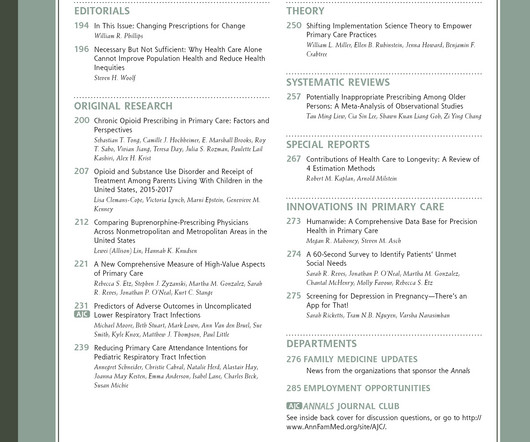Oral versus intravenous antibiotics for the initial treatment of acute pyelonephritis in adults: a systematic review [Acute and emergency care]
Annals of Family Medicine
NOVEMBER 20, 2024
Context Acute pyelonephritis is a common diagnosis in the primary care and emergency settings. These include minimizing resource utilization and decreasing the risk of complications associated with IV antibiotics such as diarrhea. After screening, 31 full texts were reviewed, and 3 studies were included. Intervention N/A.













Let's personalize your content